Evaluating Country Programmes - OECD Online Bookshop
Evaluating Country Programmes - OECD Online Bookshop
Evaluating Country Programmes - OECD Online Bookshop
You also want an ePaper? Increase the reach of your titles
YUMPU automatically turns print PDFs into web optimized ePapers that Google loves.
<strong>Evaluating</strong> <strong>Country</strong> <strong>Programmes</strong><br />
30<br />
Box 1.4. Influences upon the capacity to identify and measure<br />
the impact of a country programme<br />
Degree to which aid flows dominate the economy (nationally, sectorally,<br />
regionally) or share influence with domestic investment (private and public) and<br />
private international capital.<br />
Degree to which the donor in question dominates aid (nationally, sectorally or<br />
regionally) i.e., degree to which effects of that donor’s aid can be isolated from<br />
effects of aid from other donors.<br />
Nature of aid instruments in the country programme (project, programme, technical<br />
assistance, etc.).<br />
Nature of the sectoral focus of the country programme (impact seen sooner in<br />
productive sectors than in health, education or administration sectors).<br />
<strong>Country</strong> programme has maintained a consistent focus (sectoral, geographical<br />
or thematic) and approach over a long period.<br />
Quantity and quality of baseline and current information on development performance<br />
(macroeconomic, human development indicators) by which to measure change.<br />
Resources (time, analytical skills and money) available for CPE data collection<br />
and analysis and quality of country programme information systems [records of programme<br />
decision-making, M & E (monitoring and evaluation) database etc.].<br />
Availability of suitable component comparators (projects of similar type run by<br />
partner government, NGOs or other donors in country in question or by the same<br />
donor in other countries).<br />
Availability of suitable national comparator(s): country or countries with similar<br />
natural resource endowments and socio-cultural, economic and political systems at<br />
baseline, which have not received aid, for which good baseline and current information<br />
are available.<br />
from this inequality. Partnership can be seen as valuable in prosaically methodological<br />
terms, as a means to the end of more insightful evaluation: for example, partner<br />
governments can often provide useful insights into how one donor compares to<br />
another and a means of benchmarking. 17 More importantly, partnership is for many<br />
donors a matter of principle connected to more general concerns with aid formulation<br />
and implementation. Partnership in <strong>Country</strong> Programme Evaluation is seen as a way<br />
of improving the quality of aid by incorporating (or at least recognising) the views and<br />
resources of various stakeholders. As a forum for the expression of different opinions,<br />
a <strong>Country</strong> Programme Evaluation can provide a valuable opportunity to foster a sense<br />
of shared commitment to a common goal; consultation in <strong>Country</strong> Programme Evaluation<br />
can build trust among the donor, partner government and intended beneficiaries.<br />
This emerged strongly in the review of the Swiss experience with <strong>Country</strong><br />
<strong>OECD</strong> 1999


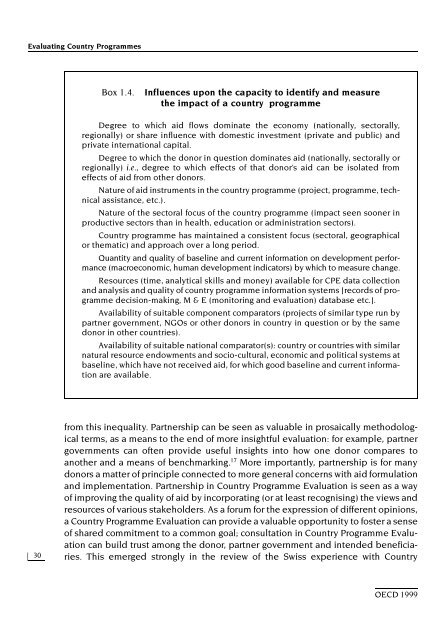


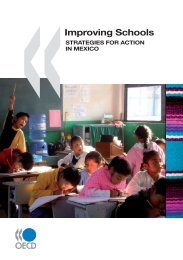
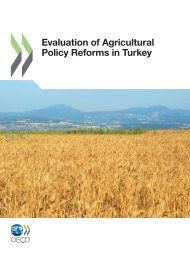
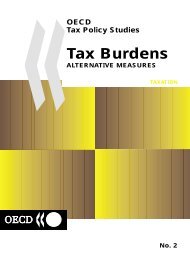
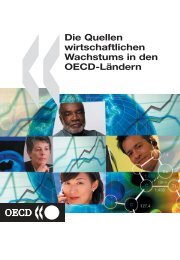
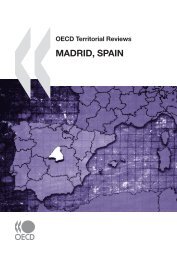


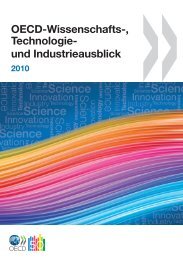
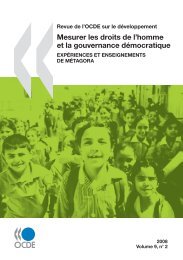
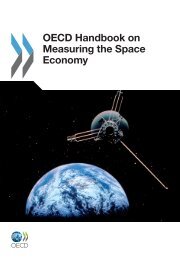
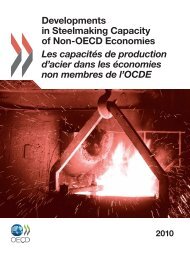
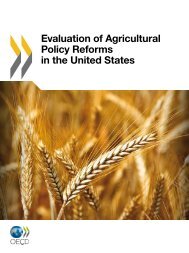
![CQE=U]^\]Z: KAZAKHSTAN - OECD Online Bookshop](https://img.yumpu.com/3915768/1/190x253/cqeuz-kazakhstan-oecd-online-bookshop.jpg?quality=85)